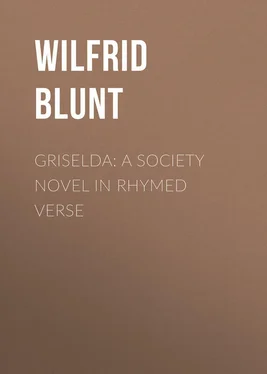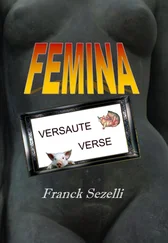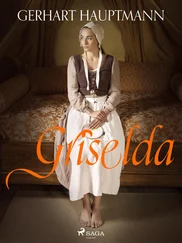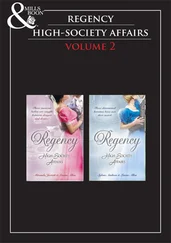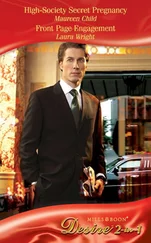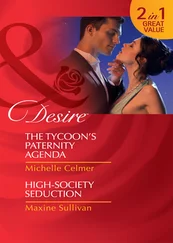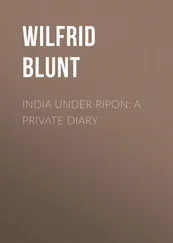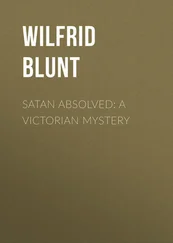Wilfrid Blunt - Griselda - a society novel in rhymed verse
Здесь есть возможность читать онлайн «Wilfrid Blunt - Griselda - a society novel in rhymed verse» — ознакомительный отрывок электронной книги совершенно бесплатно, а после прочтения отрывка купить полную версию. В некоторых случаях можно слушать аудио, скачать через торрент в формате fb2 и присутствует краткое содержание. Жанр: foreign_antique, foreign_prose, foreign_poetry, на английском языке. Описание произведения, (предисловие) а так же отзывы посетителей доступны на портале библиотеки ЛибКат.
- Название:Griselda: a society novel in rhymed verse
- Автор:
- Жанр:
- Год:неизвестен
- ISBN:нет данных
- Рейтинг книги:5 / 5. Голосов: 1
-
Избранное:Добавить в избранное
- Отзывы:
-
Ваша оценка:
- 100
- 1
- 2
- 3
- 4
- 5
Griselda: a society novel in rhymed verse: краткое содержание, описание и аннотация
Предлагаем к чтению аннотацию, описание, краткое содержание или предисловие (зависит от того, что написал сам автор книги «Griselda: a society novel in rhymed verse»). Если вы не нашли необходимую информацию о книге — напишите в комментариях, мы постараемся отыскать её.
Griselda: a society novel in rhymed verse — читать онлайн ознакомительный отрывок
Ниже представлен текст книги, разбитый по страницам. Система сохранения места последней прочитанной страницы, позволяет с удобством читать онлайн бесплатно книгу «Griselda: a society novel in rhymed verse», без необходимости каждый раз заново искать на чём Вы остановились. Поставьте закладку, и сможете в любой момент перейти на страницу, на которой закончили чтение.
Интервал:
Закладка:
Griselda's early days
Of married life were not that fitful maze
Of tears and laughter which betoken aught,
Changed or exchanged, of pain with pleasure bought,
Of maiden freedom conquered and subdued,
Of hopes new born and fears of womanhood.
Those who then saw Griselda saw a child
Well pleased and happy, thoughtlessly beguiled
By every simplest pleasure of her age,
Gay as a bird just issued from its cage,
When every flower is sweet. No eye could trace
Doubt or disquiet written on her face,
Where none there was. And, if the truth be told,
Griselda grieved not that Lord L. was old.
She found it well that her sweet seventeen
Should live at peace with fifty, and was seen
Just as she felt, contented with her lot,
Pleased with what was and pleased with what was not.
She held her husband the more dear that he
Was kind within the bounds of courtesy,
And love was not as yet within her plan,
And life was fair, and wisdom led the van.
For she was wise – oh, wise! She rose at eight
And played her scales till breakfast, and then sat
The morning through with staid and serious looks,
Counting the columns of her household books,
Her daily labour, or with puzzled head
Bent over languages alive and dead,
Wise as, alas! in life those only are
Who have not yet beheld a twentieth year.
Wealth had its duties, time its proper use,
Youth and her marriage should be no excuse;
Her education must be made complete!
Lord L. looked on and quite approved of it.
The afternoons, in sense of duty done,
Went by more idly than the rest had gone.
If in the country, which Lord L. preferred,
She had her horse, her dogs, her favourite bird,
Her own rose-garden, which she loved to rake,
Her fish to feed with bread crumbs in the lake,
Her schools, old women, poor and almshouses,
Her sick to visit, or her church to dress.
Lord L. was pleased to see her bountiful:
They hardly found the time to find it dull.
In London, where they spent their second year,
Came occupations suited to the sphere
In which they lived; and to the just pretence
Of our Griselda's high-born consequence,
New duties to the world which no excuse
Admitted. She was mistress of L. House
And heir to its traditions. These must be
Observed by her in due solemnity.
Her natural taste, I think, repelled the noise,
The rush, and dust, and crush of London joys;
But habit, which becomes a second sense,
Had reconciled her to its influence
Even in girlhood, and she long had known
That life in crowds may still be life alone,
While mere timidity and want of ease
She never ranked among youth's miseries.
She had her parents too, who made demand
Upon her thoughts and time, and close at hand
Sisters and friends. With these her days were spent
In simple joys and girlish merriment.
She would not own that being called a wife
Should make a difference in her daily life.
Then London lacks not of attractions fit
For serious minds, and treasures infinite
Of art and science for ingenious eyes,
And learning for such wits as would be wise,
Lectures in classes, galleries, schools of art:
In each Griselda played conspicuous part —
Pupil and patron, ay, and patron-saint
To no few poor who live by pens and paint.
The world admired and flattered as a friend,
And only wondered what would be the end.
And so the days went by. Griselda's face,
Calm in its outline of romantic grace,
Became a type even to the vulgar mind
Of all that beauty means when most refined,
The visible symbol of a soul within,
Conceived immaculate of human sin,
And only clothed in our humanity
That we may learn to praise and better be.
Where'er she went, instinctively the crowd
Made way before her, and ungrudging bowed
To one so fair as to a queen of earth,
Ruling by right of conquest and of birth.
And thus I first beheld her, standing calm
In the swayed crowd upon her husband's arm,
One opera night, the centre of all eyes,
So proud she seemed, so fair, so sweet, so wise.
Some one behind me whispered "Lady L.!
His Lordship too! and thereby hangs a tale."
His Lordship! I beheld a placid man,
With gentle deep-set eyes, and rather wan,
And rather withered, yet on whose smooth face
Time seemed to have been in doubt what lines to trace
Of youth or age, and so had left it bare,
As it had left its colour to his hair.
An old young man perhaps, or really old,
Which of the two could never quite be told.
I judged him younger than his years gave right:
His looks betrayed him least by candlelight.
Yet, young or old, that night he seemed to me
Sublime, the priest of her divinity
At whose new shrine I worshipped. But enough
Of me and my concerns! More pertinent stuff
My tale requires than this first boyish love,
Which never found the hour its fate to prove.
My Lady smiling motions with her hand;
The crowd falls back; his Lordship, gravely bland,
Leads down the steps to where his footmen stay
In state. Griselda's carriage stops the way!
And was Griselda happy? Happy? – Yes,
In her first year of marriage, and no less
Perhaps, too, in her second and her third.
For youth is proud, nor cares its last sad word
To ask of fate, and not unwilling clings
To what the present hour in triumph brings.
It was enough, as I have said, for her
That she was young and fortunate and fair.
The world that loved her was a lovely world,
The rest she knew not of. Fate had not hurled
A single spear as yet against her life.
She would not argue as 'twixt maid and wife,
Where both were woman, human nature, man,
Which held the nobler place in the world's plan.
Her soul at least was single, and must be
Unmated still through its eternity.
And, even here in life, what reason yet
To doubt or question or despair of Fate?
Her youth, an ample web, before her shone
For hope to weave its subtlest fancies on,
If she had cared to dream. Her lot was good
Beyond the common lot of womanhood,
And she would prove her fortune best in this,
That she would not repine at happiness.
Thus to her soul she argued as the Spring
Brought back its joy to each begotten thing —
Begotten and begetting. Who shall say
Which had the better reason, she or they?
In the fourth year a half acknowledged grief
Made its appearance in Griselda's life.
Her sisters married, younger both than she,
Mere children she had thought, and happily.
Each went her way engrossed by her new bliss,
Too gay to guess Griselda's dumb distress.
Her home was broken. In their pride they wrote
Things that like swords against her bosom smote,
The detail of their hopes, and loves, and fears.
Griselda read, and scarce restrained her tears.
Her mother too, the latest fledgling flown,
Had vanished from the world. She was alone.
When she returned to London, earlier
Than was her custom, in the following year,
She found her home a desert, dark and gaunt;
L. House looked emptier, gloomier than its wont.
Griselda sighed, for on the table lay
Two letters, which announced each in its way
The expected tidings of her sisters' joy.
Either was brought to bed – and with a boy.
Her generous heart leaped forth to these in vain,
It could not cheat a first sharp touch of pain,
But yielded to its sorrow.
That same night,
Lord L., whose sleep was neither vexed nor light,
And who for many years had ceased to dream,
Beheld a vision. Slowly he became
Aware of a strange light which in his eyes
Shone to his vast discomfort and surprise;
And, while perplexed with vague mistrusts and fears,
He saw a face, Griselda's face, in tears
Before him. She was standing by his bed
Holding a candle. It was cold, she said,
And shivered. And he saw her wrap her shawl
About her shoulders closely like a pall.
Why was she there? Why weeping? Why this light,
Burning so brightly in the dead of night?
These riddles poor Lord L.'s half-wakened brain
Tried dimly to resolve, but tried in vain.
Интервал:
Закладка:
Похожие книги на «Griselda: a society novel in rhymed verse»
Представляем Вашему вниманию похожие книги на «Griselda: a society novel in rhymed verse» списком для выбора. Мы отобрали схожую по названию и смыслу литературу в надежде предоставить читателям больше вариантов отыскать новые, интересные, ещё непрочитанные произведения.
Обсуждение, отзывы о книге «Griselda: a society novel in rhymed verse» и просто собственные мнения читателей. Оставьте ваши комментарии, напишите, что Вы думаете о произведении, его смысле или главных героях. Укажите что конкретно понравилось, а что нет, и почему Вы так считаете.
